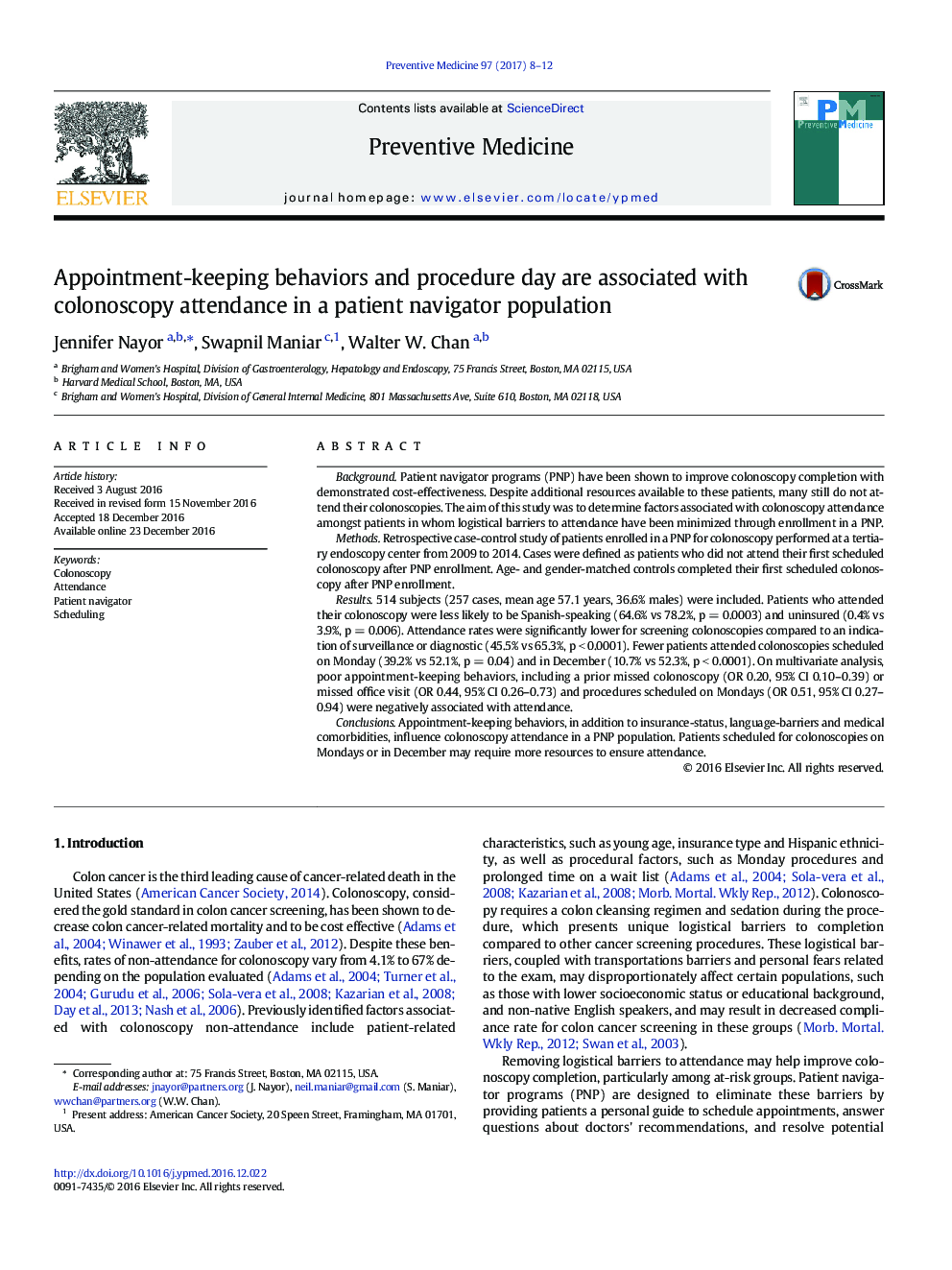| Article ID | Journal | Published Year | Pages | File Type |
|---|---|---|---|---|
| 5635788 | Preventive Medicine | 2017 | 5 Pages |
â¢Patient navigator programs improve logistical barriers to colonoscopy attendance.â¢Predictors of colonoscopy attendance in a patient navigator program were examined.â¢Appointment-keeping behaviors were shown to influence colonoscopy attendance.â¢Patients scheduled for colonoscopy on Mondays were less likely to attend.â¢Strategic scheduling may help improve attendance in patient navigator programs.
BackgroundPatient navigator programs (PNP) have been shown to improve colonoscopy completion with demonstrated cost-effectiveness. Despite additional resources available to these patients, many still do not attend their colonoscopies. The aim of this study was to determine factors associated with colonoscopy attendance amongst patients in whom logistical barriers to attendance have been minimized through enrollment in a PNP.MethodsRetrospective case-control study of patients enrolled in a PNP for colonoscopy performed at a tertiary endoscopy center from 2009 to 2014. Cases were defined as patients who did not attend their first scheduled colonoscopy after PNP enrollment. Age- and gender-matched controls completed their first scheduled colonoscopy after PNP enrollment.Results514 subjects (257 cases, mean age 57.1 years, 36.6% males) were included. Patients who attended their colonoscopy were less likely to be Spanish-speaking (64.6% vs 78.2%, p = 0.0003) and uninsured (0.4% vs 3.9%, p = 0.006). Attendance rates were significantly lower for screening colonoscopies compared to an indication of surveillance or diagnostic (45.5% vs 65.3%, p < 0.0001). Fewer patients attended colonoscopies scheduled on Monday (39.2% vs 52.1%, p = 0.04) and in December (10.7% vs 52.3%, p < 0.0001). On multivariate analysis, poor appointment-keeping behaviors, including a prior missed colonoscopy (OR 0.20, 95% CI 0.10-0.39) or missed office visit (OR 0.44, 95% CI 0.26-0.73) and procedures scheduled on Mondays (OR 0.51, 95% CI 0.27-0.94) were negatively associated with attendance.ConclusionsAppointment-keeping behaviors, in addition to insurance-status, language-barriers and medical comorbidities, influence colonoscopy attendance in a PNP population. Patients scheduled for colonoscopies on Mondays or in December may require more resources to ensure attendance.
